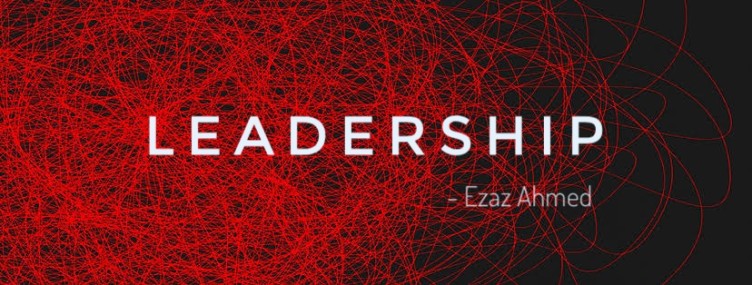LEADERSHIP
Leadership is the art of managing people to achieve a particular goal – Ezaz Ahmed
The leadership is a chaotic assembly of people and instruments. Leadership is the ability to motivate a group member to achieve a goal. It’s a human element to bring them together. This element motivates me to achieve the goal. Leadership potential carries the ultimate responsibility to turn the latent potential of the organization and its members into success.
Theories of Leadership
(A) Trait Theory:
The theory emphasizes the qualities that a leader needs to develop to be a successful leader. Researchers have identified this theory as the “Superhuman” theory. According to this theory, a leader is different from ordinary people. Because of all the qualities that he has not seen in ordinary people. The qualities that a leader must possess are courage, patience, intelligence, self-confidence, enthusiasm, foresight and compelling strength.
(B) Behavioral Theory:
The leader’s theory of behaviour is much more precise. In this theory, special importance is attached to the conduct of the leader. The leader works in a particular situation and environment whose influence is reflected in his actions and behaviour or the environment influences his behaviour the most. The type of leadership also varies due to the influence of different situations and environments. How a leader treats his followers can be easily determined whether he is a democrat or a dictator. This theory provides an accurate idea of the nature of leadership. There are two main aspects of a leader’s behaviour.
Contact structure or work profile- Identity structure means that a leader distributes specific tasks among his subordinates to achieve the goals of the organization. Explain the specific method of work and create work boundaries and a work routine. Consideration- Consideration means whether a leader has been able to create a supportive and conducive environment in the organization. A leader takes care of his colleagues’ advantages and disadvantages, treats them with friendliness, respects their opinions and feelings, and is tolerant.
(C) Situational Theory:
The essence of the theory is that in special situations the leader has to behave specially and act accordingly. A leader is most influenced by the environment and circumstances. According to this theory, the leader has been termed as the result of the situation and environment of a particular party. Differences are seen between leaders in different situations. Due to the situation, one leader has emerged from time to time. Leaders like Hitler, Mussolini, Mahatma Gandhi, and Bangabandhu appeared due to special circumstances.
Unrestricted principled leadership:
Such leaders are completely dependent on subordinate employees. All leader responsibilities are assigned to employees to achieve goals.
Types of Leadership:
Dictatorial Leadership:
The way a dictatorial leader works is to intimidate. Fear of punishment and retribution affects subordinates. Subordinates do not participate in this leadership. If the dictatorial leader does not act accordingly, there is a possibility of dismissal of the subordinate employee.
Monolithic Leadership:
Always a monolithic leader conducts work with a patriarchal attitude towards the dissidents. The overwhelming reliance of subordinate employees relies. To be successful in such leadership, the leader has to be very strong, knowledgeable and efficient enough. Here the employees become a single leader and the work stops in the absence of the leader.
Democratic Leadership:
The democratic leader does not really depend on his own power. He distributes some of his responsibilities to his subordinates. He makes decisions based on the opinions of his subordinates and evaluates the efficiency and prudence of his subordinates. As a result of this leadership, subordinates have the opportunity to express their views or participate in decision-making in various fields so they are more likely to develop leadership qualities.
If you want to be a good leader you have to good listener and prepare to lead. Must you have to generate in your mindset motivating power, vision, courage, loyalty, educated, active, dutiful, energetic and realistic? Remove some words if, but, problem, impossible and try. Always remember authority power is a particular role but leadership is an action.

